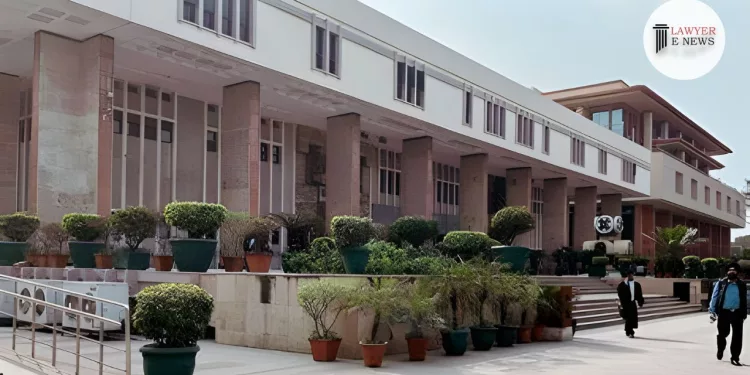Bail Cannot Be Granted Unless Twin Conditions of Proving No Guilt and No Likelihood of Re-offending Are Met Under MCOCA: Delhi High Court

The Delhi High Court has rejected the bail application of Dheerpal alias Kana, accused under the Maharashtra Control of Organised Crime Act (MCOCA) and various other serious offenses. The judgment, delivered by Hon’ble Justice Navin Chawla on May 30, 2024, underscores the stringent scrutiny required under MCOCA and the significant role of the accused in the alleged crime syndicate. The Court highlighted the flight risk posed by the applicant and the prima facie case established by the prosecution.
Background: Dheerpal alias Kana filed a bail application under Section 439 of the Code of Criminal Procedure, 1973, seeking release in connection with FIR No. 531/2015 registered at Police Station Najafgarh, Delhi. The FIR involves allegations under Sections 3 and 4 of the MCOCA, Section 25 of the Arms Act, and various sections of the Indian Penal Code, including murder, extortion, and robbery. The prosecution alleges that Dheerpal is a key associate of the organized crime syndicate led by Vikas Gulia alias Vikas Langarpuria, involved in multiple serious crimes across Delhi and Haryana.
Role of Accused in Organized Crime: The Court examined substantial evidence linking the applicant to an organized crime syndicate led by Vikas Gulia alias Vikas Langarpuria. The prosecution presented multiple FIRs and investigation reports substantiating the applicant’s involvement in serious offenses, including murder, extortion, and robbery. “The applicant’s previous conduct and risk of absconding cannot be ignored,” Justice Chawla noted. The applicant’s involvement in ten cases, with three cases alongside Vikas Langarpuria, reinforced the prosecution’s claim.
Legal Standards for Bail under MCOCA: The judgment delved into the legal framework of MCOCA, emphasizing the strict conditions under Section 21(4). The Court reiterated that bail cannot be granted unless the applicant meets the twin conditions of proving no guilt and no likelihood of re-offending. “The applicant has failed to satisfy these criteria,” the Court observed, referencing the applicant’s absconding behavior and subsequent involvement in further crimes during interim bail.
Existence of Prima Facie Case under MCOCA: Justice Chawla highlighted the prima facie case against the applicant under MCOCA, referencing the evidence of continuing unlawful activity and the applicant’s role in the organized crime syndicate. “The applicant’s involvement in an organized crime syndicate is supported by multiple chargesheets and cognizance taken by the Court,” the judgment stated. The Court noted the necessity of considering the reasons for acquittal or discharge in related cases, which often stemmed from witness intimidation, a key factor in organized crime.
“The balance of competing rights in this case can only be achieved by ensuring an expedited trial,” Justice Chawla remarked. “The evidence linking the applicant to the organized crime syndicate is substantial, and his previous conduct indicates a significant flight risk.”
Decision: The Delhi High Court’s decision to deny bail to Dheerpal alias Kana underscores the judiciary’s commitment to stringent scrutiny under MCOCA and the importance of addressing organized crime comprehensively. By directing the Trial Court to expedite proceedings, the judgment aims to balance the rights of the accused with societal interests. This decision is expected to have significant implications for future cases involving organized crime, reinforcing the legal framework designed to combat such offenses.
Date of Decision: May 30, 2024
Dheerpal Alias Kana vs. State Govt of NCT of Delhi






